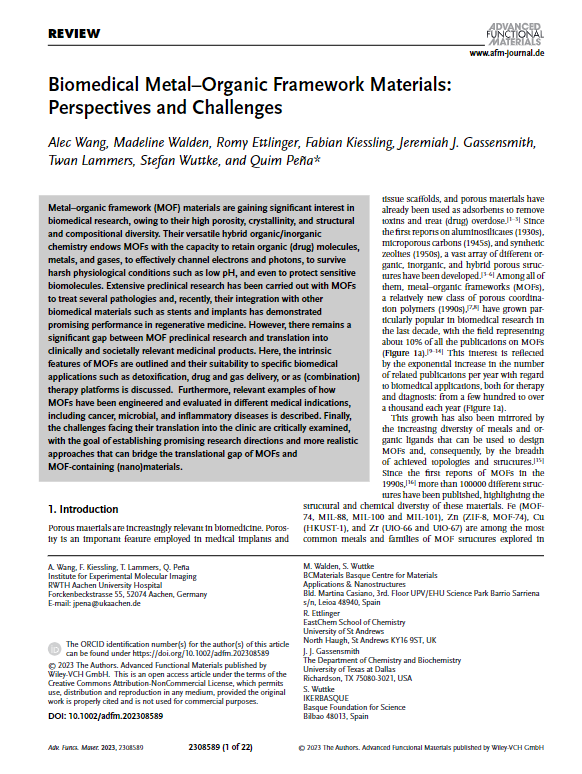
Biomedical Metal–Organic Framework Materials: Perspectives and Challenges
https://doi.org/10.1002/adfm.202308589
Metal–organic framework (MOF) materials have attracted a lot of attention for their potential biomedical applications. They offer unprecedented porosity, tunability, and versatile metal-organic chemistry that can enable novel therapeutic approaches in different indications such as cancer (immuno-)therapy, inflammation, regenerative medicine, and infectious diseases. However, this wealth of preclinical investigation has not translated effectively into the clinic. In this review, we take a translational perspective in analyzing MOF chemistry and the features of MOF (nano-)materials for different biomedical applications. We also assess the remaining barriers to clinical translation of MOFs and critically discuss possible approaches towards realistically bridging the translational gap and, ultimately, generating clinical impact.
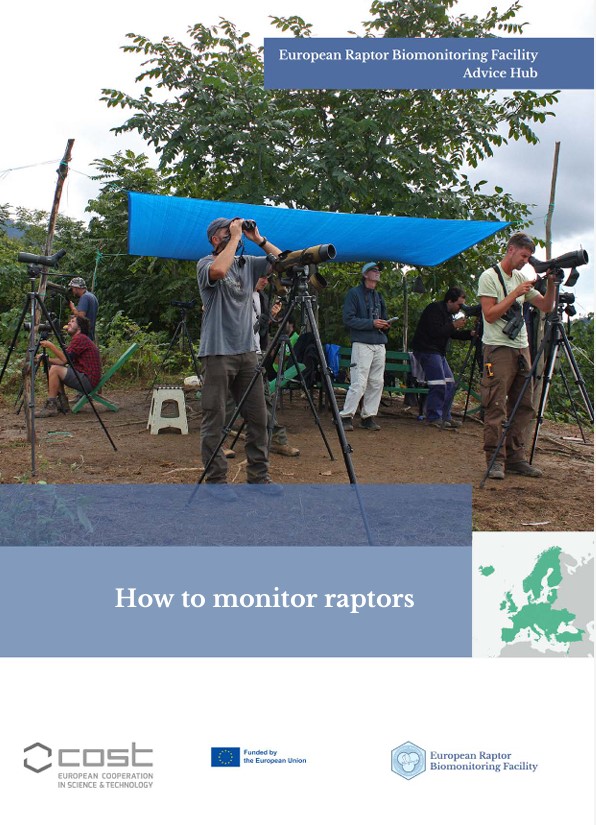
How to monitor raptors
This section of the ERBfacility Action Advice Hub gives a concise guide to monitoring a range of contextual parameters in raptors, with a focus on those that are (a) most useful for interpretation of pan-European contaminant studies and (b) most feasible to record by many researchers across Europe.
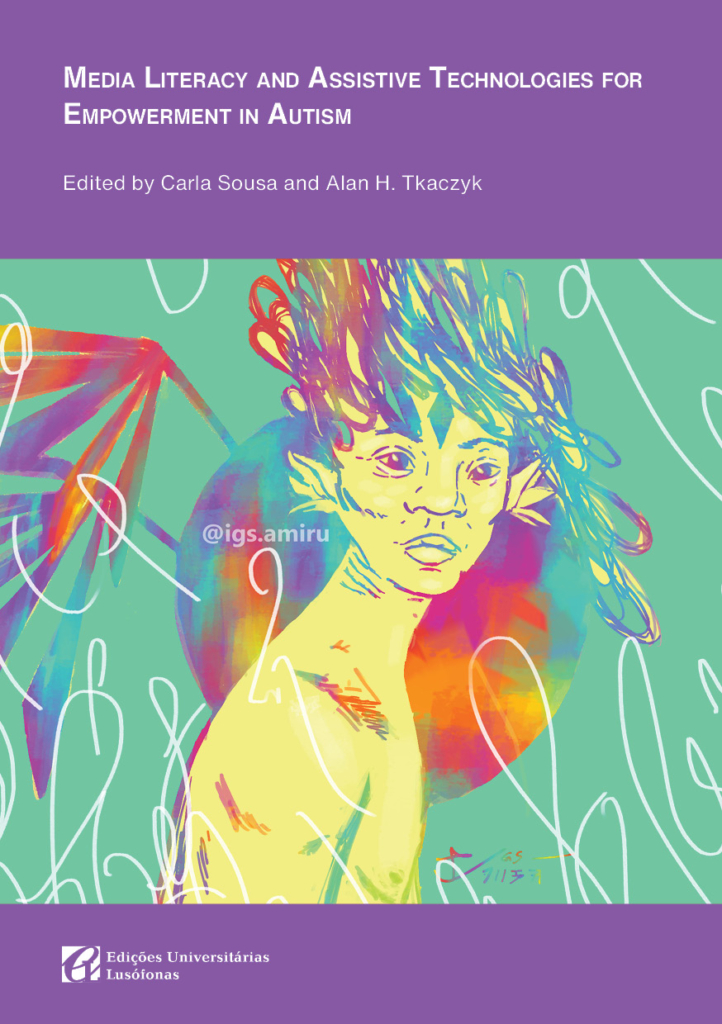
Media Literacy and Assistive Technologies for Empowerment in Autism
ISBN 978-972-54-0983-1
DOI 10.24140/asdigital.v1
Recognising the unique challenges and opportunities faced by people on the autism spectrum in navigating the complex world of media, the ASDigital and a-STEP COST Action (CA19104) have brought together a group of academics, professionals and people on the autism spectrum to develop short, user-friendly approaches that reflect on the existing evidence on the challenges and promise of this relationship.
The primary objective of this book titled “Media Literacy and Assistive Technologies for Empowerment in Autism” is to examine and shed light on the aforementioned dynamics. It aims to provide valuable perspectives on how media literacy and assistive technology can enhance the capabilities of individuals with autism, enabling them to flourish in the era of digital advancements.
Promoting more media literacy initiatives including individuals in the autism spectrum could provide them the tools to navigate an ever-evolving digital landscape with confidence and competence (Ressa, 2022). Therefore, in the first part of this book, called “Autism, Diversity, and Media Literacy”, six chapters are presented, to explore the different intersections between the fields of media literacy, media education, diversity, and autism.
Taking into consideration that Assistive Technologies (AT) show great promise in supporting people with diverse abilities and expertise, including people with Autism Spectrum Disorder (ASD) and Intellectual Disability (ID), and that intuitive, inclusive design and proper implementation of AT can foster confidence and self-sufficiency to truly empower and socially include individuals across the ASD and ID spectra. The second half of this book, entitled “Assistive Technologies, Empowerment, and Inclusion”, has as its main goal to delve into a broad range of assistive technologies at the nexus of empowerment and inclusion.
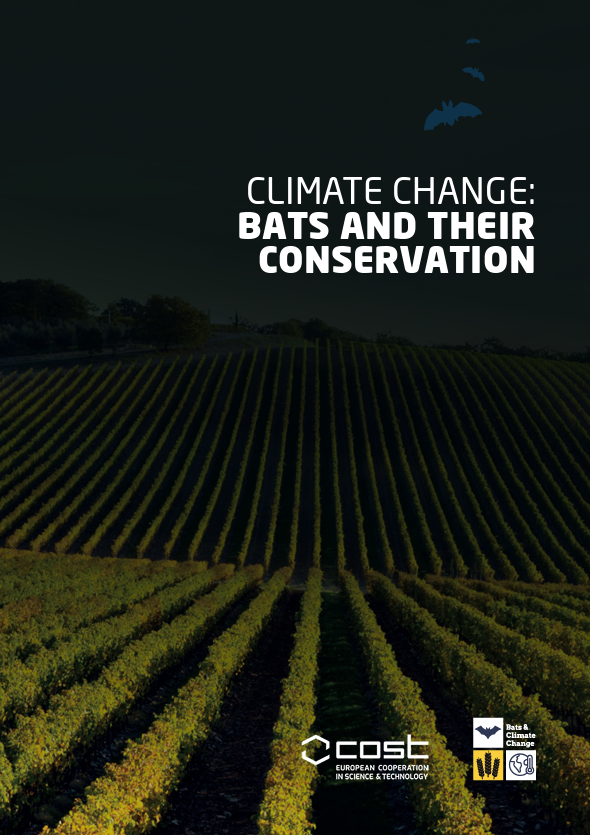
CLIMATE CHANGE: BATS AND THEIR CONSERVATION
Climate change has wide-ranging adverse effects on wildlife and the essential ecosystem services they provide. Bats are a diverse and widely distributed group that make up about a fifth of all the native mammal species in Europe. All but one of our 45 species are insect-eaters, and they play a vital role in regulating insect populations. Despite their vulnerability to climate change, bats have received relatively little attention compared to other animal groups.
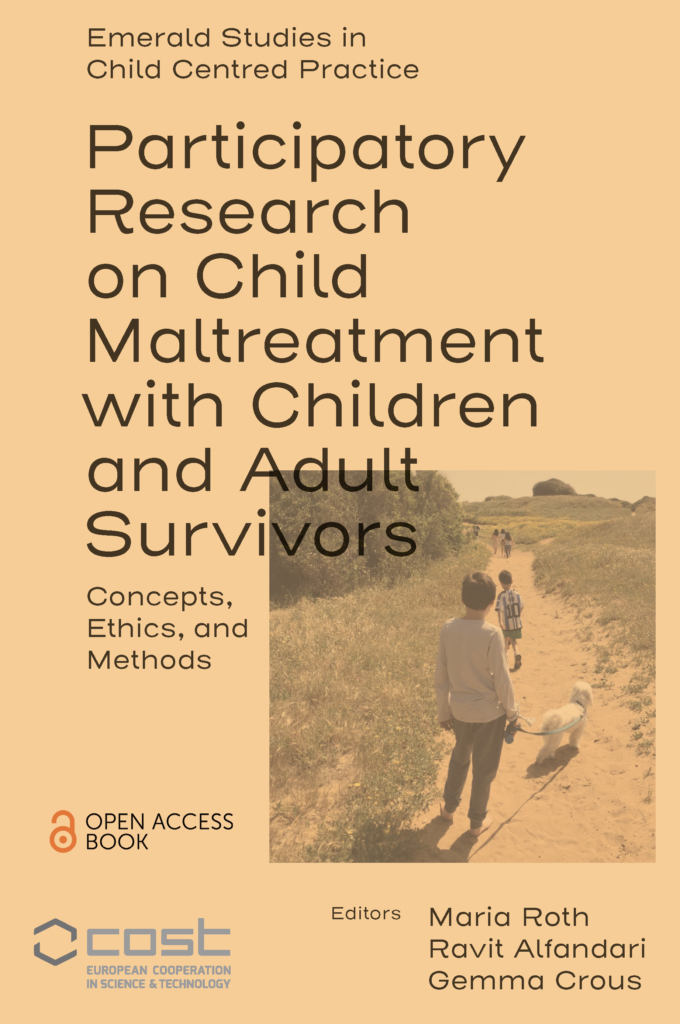
Participatory Research on Child Maltreatment with Children and Adult Survivors
ISBN: 978-1-80455-529-3 (Print)
ISBN: 978-1-80455-526-2 (Online)
ISBN: 978-1-80455-528-6 (Epub)
Concepts, Ethics, and Methods
Childhood should be free of violence, and victims of childhood
maltreatment should be entitled to participate as expert informants in
research about these experiences. Placing children and adult survivors
at the heart of research efforts on child maltreatment is critical to
effective response and prevention measures in fighting this form of
violence.
Embedded in the European context, Participatory Research on Child
Maltreatment with Children and Adult Survivors presents a mosaic of
contexts, theories, and methods relating to children’s and adult
survivors’ participation in research about their adverse experiences.
Contributors demonstrate how research can mobilize children and
adult survivors to become agents in constructing and disseminating
reliable, evidence-based knowledge about child maltreatment.
Enriching ongoing debates about ethical concerns and challenges of
participatory research in the field of child maltreatment, this
contribution to Emerald Studies in Child Centred Practice highlights the
advantages that participation as a human right and as a valued
endeavour of scientific knowledge accumulation can bring to
communities of researchers and helping professionals.

European Narratives on Remote Working and Coworking During the COVID-19 Pandemic
ISBN: 978-3-031-26017-9
This open access book offers a multidisciplinary and comprehensive perspective regarding the immediate and long-term effects of the Covid-19 pandemic on coworking spaces in the European Region. The current pandemic has imposed several effects on work and spaces for work. Some are immediate effects and will last for a short time (such as the closing down of the space), some will last longer (namely, the reorganisation of the space to meet the physical distancing), and some will stay for a long time (remote working and hybrid working). Although the literature on coworking spaces and the effects of the pandemic is growing fast, empirical studies are yet limited. Within this context, this book seeks a twofold aim: (i) to contribute to the fast-growing literature on coworking space and their effects at different scales; (ii) to present a multidisciplinary perspective about the effects of the yet-lasting Corona-pandemic effects on the patterns of remote working and consequently on coworking spaces, as the most diffused form of new working spaces.

Methodology and position paper for a review study on the conceptualisation and delivery of family support in Europe
ISBN 978-84-09-44508-0
This paper produced by EurofamNet undertakes ‘a scoping study of the conceptualisation and delivery of family support in Europe’. It provides some starting points for the conceptualisation of family support in broad terms and highlights the centrality of children’s rights and family welfare perspectives to the aims and objectives of EurofamNet. It also sets out the aims, approach and design of the scoping study.

Evidence-based family and parenting support evaluation strategies: The position of EurofamNet
ISBN 978-84-09-43109-0
Recognising that efforts are still necessary to reckon with the heterogeneity of service delivery in family support, the internal disparities of professional cultures upon the external EurofamNet’s position of family and parenting support evaluation strategies | 6 input of evidence-based practices and the standards of an evaluation culture, this paper intends to contribute to a thorough and comprehensive position of the EuroFamNet COST Action on parenting support evaluation strategies. In what follows, this paper briefs the rationale of the evidence-based practice outlining its advances in family support services delivered in community settings. The short historical account traces how the perspectives and approaches to evaluate the putative effects of evidence-based parenting programmes also brought about an interest in the relations and linkages among research, professional practice and, more recently, policies and children and family participation.

